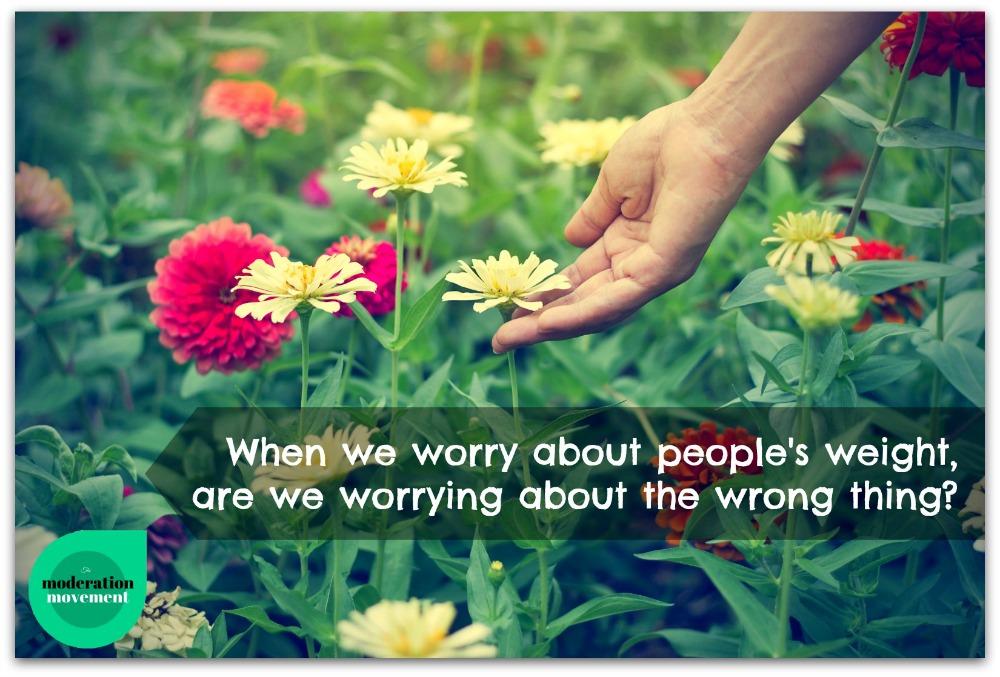When we worry about people’s weight, are we worrying about the wrong thing?

Take Sarah, she’s 42 and 20 kilos heavier than she was 15 years ago. Sarah has a high profile stressful job and works around 50 hours per week. She gets less than 7 hours sleep most nights and is always tired, she also struggles to say no to friends and family when they ask her to do things. Sarah is a perfectionist and feels guilty when she’s not being productive. She rarely has time to got for a walk, let alone use her gym membership and her eating tends to be chaotic.
While this may sound extreme to some of you, Sarah represents a number of the people I see who come to me unhappy with their bodies and wanting to lose weight.
If Sarah was given advice to lose weight, what would she be likely do? Most likely Sarah would consider trying to do something about her eating, possibly going on a diet, and increasing her exercise.
If we take a moment to consider why Sarah’s eating is chaotic and why she’s inactive, it’s not hard to see where the real issue lies. Sarah is doing too much, she’s highly stressed, most likely too hard on herself and is getting inadequate rest and relaxation. Just addressing her diet and exercise is not going to be enough and ignores the real problem.
What if we took the focus off weight loss? What if Sarah’s goal was to reduce her stress and allow more time to self care? With the different focus, Sarah might practice saying no to people when they ask her to do things and she might consider reducing the number of hours she works which would give her some time to go for a walk or to the gym. She might consider practising self compassion which helps people with feeling less guilty when not productive and not needing to do everything perfectly, again allowing her more time be active, to sleep and to relax.
With this approach, Sarah would feel less stressed and less tired and now have the space to tune into her body’s cues of hunger and fullness and start to manage her eating better.
It is very difficult to self care when some of our most basic needs are not being met. Diet changes and exercise programs will only ever be short-term fixes if the underlying reasons for not being able to look after one’s health are not addressed. Not to mention that dieting has now been shown to be a strong predictor of weight gain and therefore advice to lose weight might actually do more damage than good.
Most people have been programmed to think that losing weight is what will improve their health and allow them to feel better within themselves. I had a client last week who told me how fantastic he felt after joining a walking group (walking 50 minutes, 4 times per week) and losing 5 kilos. I asked what it was that made him feel so good, his immediate response was, “losing the weight!” On exploring this further, my client recognised the increased physical activity and social interaction probably had more to do with how he felt, than the actual weight loss.
As another one of my other clients put it, “we have this strange conditioning regarding weight”.
Just some food for thought…
